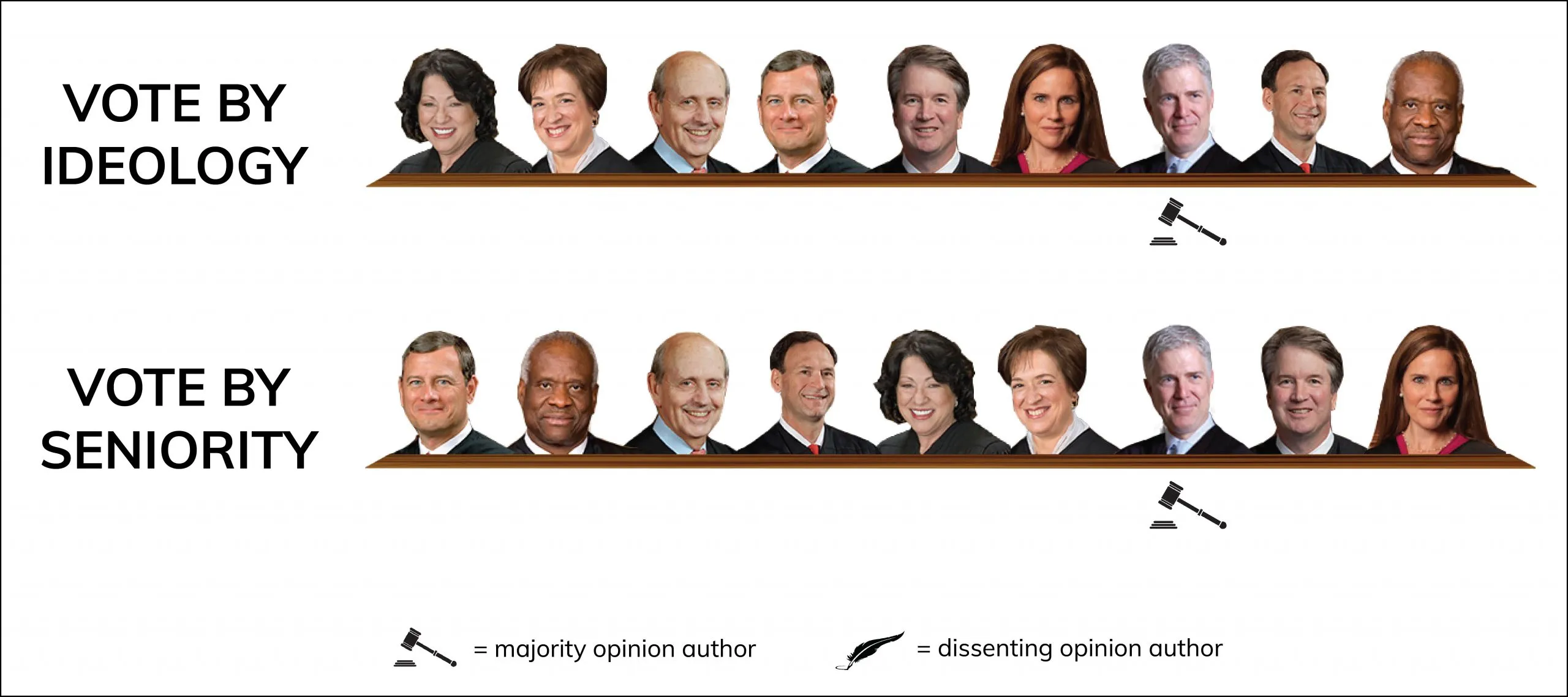In unanimous ruling, Court agrees with athletes that NCAA violated antitrust laws


The Supreme Court on Monday upheld a major shift in the relationship between universities and the athletes who play sports for those schools. In an opinion by Justice Neil Gorsuch, the justices unanimously affirmed a lower-court decision holding that the NCAA, the umbrella group that regulates college sports, cannot restrict benefits related to education, such as free laptops or paid post-graduate internships.
Monday’s decision in NCAA v. Alston ended a dispute that began seven years ago as a class action filed against the NCAA and the major athletic conferences by the athletes who play Division I football and basketball. The athletes contended in their complaint that the NCAA’s restrictions on eligibility and compensation violate federal antitrust laws by barring the athletes from receiving fair-market compensation for their labor. A federal district court in California agreed in part: It ruled that the NCAA could restrict benefits that are unrelated to education (such as cash salaries), but it barred the NCAA from limiting education-related benefits. After the U.S. Court of Appeals for the 9th Circuit upheld that decision, the NCAA and the athletic conferences went to the Supreme Court, which late last year agreed to take up the case.
In a 35-page decision, Gorsuch rejected the NCAA’s argument that the trial court’s ruling would “micromanage” the organization’s business. The district court, Gorsuch explained, only barred the NCAA from imposing restraints on benefits related to education. And it did so, Gorsuch added, only after concluding that “relaxing these restrictions would not blur the distinction between college and professional sports and thus impair demand for college sports” – a cornerstone of the NCAA’s argument. Moreover, Gorsuch noted, the district court gave the NCAA “considerable leeway” in deciding how to define what constitutes an education-related benefit.
In his final paragraph, Gorsuch outlined the dilemma facing the court. Some people may think that the district court should have gone further, he suggested, while “others will think the district court went too far by undervaluing the social benefits associated with amateur athletics.” But in the end, Gorsuch emphasized, the Supreme Court agreed with the 9th Circuit that although “[t]he national debate about amateurism in college sports is important,” it is not the Supreme Court’s job to resolve it. Instead, Gorsuch observed, the court’s job is to determine whether the district court properly applied principles of antitrust law to this dispute – which, Gorsuch concluded, it did.
Justice Brett Kavanaugh joined the court’s opinion in full, but he also wrote a separate concurring opinion in which he questioned the legality of the remaining restrictions on benefits for college athletes. He made clear that although those restrictions were not before the court in this case, Monday’s ruling established a framework for future challenges to the restrictions – and, he wrote, there are “serious questions” about whether those rules “can pass muster” under that framework. Kavanaugh, an avid sports fan who coaches his daughters’ basketball teams and unsuccessfully tried out for the varsity basketball team while an undergraduate at Yale, acknowledged that college athletics includes “important traditions that have become part of the fabric of America.” But, he warned, the “NCAA is not above the law.”
This article was originally published at Howe on the Court.
Posted in Featured, Merits Cases
Cases: National Collegiate Athletic Association v. Alston, American Athletic Conference v. Alston
